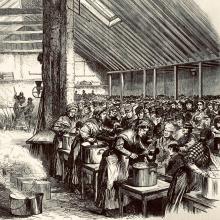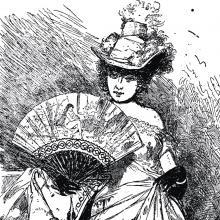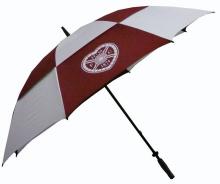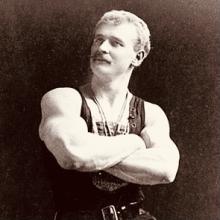
1839–43
SOUP-KITCHEN.—We understand that a soup-kitchen was opened on Saturday at Greenside Row, which will be a great boon to the poor of that densely populated parish, among whom for some time back there has been much sickness, and many very distressing cases of fever. We learn that it is under the management of the excellent minister of the parish and his session.
Scotsman, 16 January 1839
*****
VETERINARY ESTABLISHMENT
Rose Street Lane
Betwixt Frederick Street and Castle Street
HENRY SETON, VETERINARY SURGEON, respectfully begs to return his best acknowledgements to the Nobility, Gentry, &c., who have honoured him with their support since he commenced practice in Edinburgh. He begs to assure them that no exertion will be wanting on his part for a continuance of their support.
H. S. would particularly direct the attention of them to the Shoeing of their Horses, which has been and is still, very much neglected in Edinburgh, from which neglect many valuable animals are rendered in a short time almost useless. In H. S.’s Establishment the utmost attention is paid to the Shoeing Department, where, for moderate charges and good workmanship, he challenges competition.
Patterns of the different modes of shoeing can be seen at the Forge.
Accommodation for Sick and Lame Horses, Dogs, &c.
Advice to the Poor gratis.
Scotsman, 20 February 1839
*****
ACCIDENT.—An accident of rather a serious nature happened on Thursday last.
A girl of about ten years of age, belonging to the Cowgate, had been amusing herself on that part of the Calton Hill immediately in front of Greenside Row. The hill at this part is very precipitous and rugged, and, in its present unprotected state, very dangerous.
The girl, as we have said, had been amusing herself, and having lost her footing, tumbled down the hill (a height of several hundred feet) into Greenside Row, where she was picked up in a state of insensibility.
After every attention had been paid to her which humanity could dictate, she was able to mention where her parents resided. Her father was sent for, and immediately attended, and carried her home.
Scotsman, 13 July 1839
*****
ACCIDENT.—On Tuesday a boy who had gone into the stables in Nottingham Place, and amused himself by annoying a horse, received a severe kick from it on the back part of his head. He was carried to the Royal Infirmary, and is understood to be in a very precarious state in consequence.
Scotsman, 27 July 1839
*****
FIRE.—Last night, a fire took place in a stable in Old Broughton, which, being fanned by a smart breeze of wind, in a short time destroyed the building. The fire engines were speedily sent from the Police Office, and their efforts were successful in preventing the fire from extending beyond the small premises in which they originated.
Caledonian Mercury, 14 October 1841
*****
EXPLOSION OF GAS.—On Saturday night, an explosion of gas took place in the workshop of Messrs Hobb and Whittel, silversmiths, Thistle Street Lane.
The accident was occasioned by the breaking of a branch pipe in the street, while opening a common sewer, which admitted the gas through the drain under the flooring of the ground-flat.
The floor was wholly torn up through the whole length of the premises—the ceiling above broke down—and the windows were all blown out. It is fortunate that no person was hurt, but the premises, we understand, are injured to a great extent.
This should operate as a warning to builders and those who have occasion to open the streets where gas-pipes are laid, not to proceed until notice has been given to the Gas Company to stop the flow of the gas. Had this been done in the present instance the accident, we understand, would not have occurred.
Scotsman, 3 November 1841
*****
HIGH COURT OF JUSTICIARY.
Monday, Feb. 7.
Maria Watt, Jean Mason, James Hodge, candlemaker, and Elizabeth Sutherland were charged with assault and robbery; having on 20th December last, in the house in Greenside-row, occupied by the prisoner Watt, attacked and assaulted a person of the name of Gallie, to the injury of his person, and afterwards robbed him of £14 in bank-notes.[1]
Prisoners pleaded Not Guilty; but were unanimously found Guilty by the Jury; and the Court sentenced Hodge to ten years’, and each of the females to seven years’, transportation.
Scotsman, 9 February 1842
[1] About £845 today, or 70 days’ wages for a skilled tradesman in 1842.
*****
HIGH COURT OF JUSTICIARY.
On Monday, the following cases were tried:—
Alexander Mackenzie, late waiter in the Robin Hood Tavern, Gabriel’s Road, pleaded guilty to breaking into the premises of his late employer and stealing therefrom L.20 in notes and sixteen shillings in silver, and was sentenced to seven years’ transportation. […][2]
Caledonian Mercury, 2 March 1843
[2] About £1,257 today, or 104 days’ wages for a skilled labourer in 1843. Mackenzie’s former employer was John Greenlaw, who on 2 November 1836 had advertised in the Scotsman his tavern and coffee house’s ‘BREAKFASTS, DINNERS, SUPPERS, &c., done up in the first style on the shortest notice. HOT JOINTS every day from one to six. Numerous splendid Parlours for Parties. OYSTERS opened as wanted. London and Edinburgh PAPERS Daily. SOUPS and WINES excellent. Charges moderate.’ See also entries for 22 July 1837 and 11 June 1869.
*****
DARING ROBBERY.—Late on Wednesday night a daring robbery, with an ingenious mode of escape, was committed in North St Andrew Street and corner of Queen Street, at the shaft of the drift-way[3] of the tunnel for the Newhaven Railway.
A gentleman coming east Queen Street, was there accosted by a woman, who dexterously managed so to jostle him, as to enable her to possess herself of his gold watch chain, and seals, by boldly snatching them from him.
She immediately ran off, and, entering the south side door of the booth at the shaft, with the greatest coolness and precision, darted beneath the axle of the windlass, and between the bucket ropes, which were being worked at the time, and fearlessly stepping across the mouth of the pit, got safely into the workmen’s chamber on the other side, where the furnace is placed for the ventilation of the mine.
Here she lifted the latch of the door, that opens on the south side of the booth, and again reaching the street, got into the Meuse Lane[4] behind St Andrew’s Square, and escaped with her booty, leaving the gentleman and his followers, whom he had collected by his cries, to gaze in wonder and astonishment on the other side of the shaft at her hardihood and accomplished daring.
When the nature of the place is observed in daylight, it is clear the woman had known her localities most perfectly, and been quite aware of the difficulties she had to encounter.
Caledonian Mercury, 14 September 1843
[3] A roughly horizontal passageway.
[4] This story only makes sense if she first entered by the north door of the booth.
News from the Mews will resume in February 1844 on Thursday.
Image top-right: Wikimedia, creative commons.



